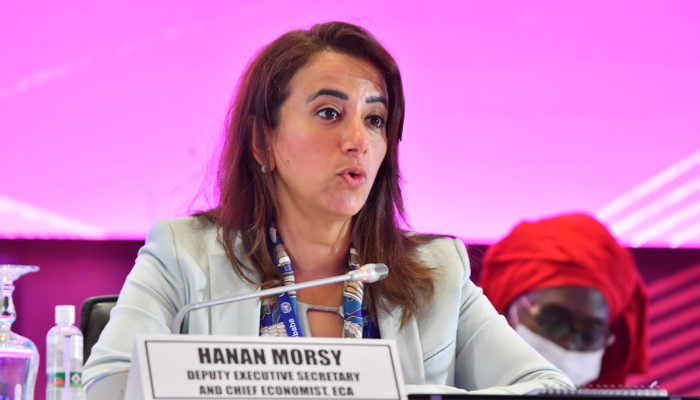By Asmau Ahmad
The Chief Economist of the Economic Commission for Africa (ECA), Hanan Morsy, said Africa currently accounts for more than half of the World’s poor at 54. 8 per cent.
Morsy said this at the 55th session of the Conference of African Ministers of Finance, Planning, and Economic Development in Addis Ababa, Ethiopia, on Monday.
“The continent faced a tsunami of global shocks that have exacerbated existing socio-economic operation and equity. Africa, as a result of these shocks, currently accounts for more than half of the world poor at 54.8 per cent.
“And we have estimated 548 million Africans living in poverty in 2022 and 149 million at risk of falling into poverty in the same year.
“There is a skewed distribution across the continent in terms of concentration of these issues, with particularly East and West Africa having a higher share of poverty across regions,” she said.
Morsy said the situation was further exacerbated by existing inequalities, noting that even in times of high economic growth in Africa, the rate of inequality still rose.
She explained that several recommendations, both domestic and international, had been put in place to help tackle this.
“We need to pursue inclusive macroeconomic policies such as targeted and efficient spending and build resilience to future shocks at the household and community level.
“African governments need to enhance resource mobilisation. To do that. I think several measures would help, including closing tax loopholes.
“Africa loses 40 to 60 billion dollars annually in tax evasion. There’s also funding that can be raised through tackling issues of illicit financial flows,’’ she said.
According to the expert, property taxation currently in Africa, on average, represents 0.3 per cent, and in terms of land taxation, only 15 out of 54 countries have any land taxation.
She noted that another very important area of recommendation is leveraging climate finance, which could enhance domestic resource mobilisation through carbon credit markets.
She said carving structural policies that would ensure structural transformation and create jobs for the people, amongst others, is vital.
The economist said there is the need to enhance Africa’s regulatory framework and reform its global financial architecture.
Morsy then said to ensure continued market access, we need more lending options, official support and guarantees to enable countries to tap capital markets at affordable rates.
African Union’s Commissioner for Economic Development, Trade, Industry and Mining, Albert Muchanga, said African economic growth did not sufficiently include engineering decent jobs and reducing widespread poverty.
He said there was a need to reform the global value chain and focus on developing regional and continental value chains on the continent.
He stressed the need for countries on the continent to invest at least one per cent of their GDP in research and development.
Muchanga noted that the commission was in the process of releasing a “made in Africa standard” which, when operationalised, would promote competitiveness among qualifying firms.
He said it would also contribute to removing technical barriers to trade on the continent.
He said efforts are also being made to develop a programme supporting export demonstration and growth across Africa.
Muchanga said through the programme that Africa would move from being a producer and exporter of raw materials to an exporter of manufactured goods and agro-processed foods as well as services.
The commissioner said Africa faced a climate finance challenge, which could lead to increased climate-induced poverty across the continent.


